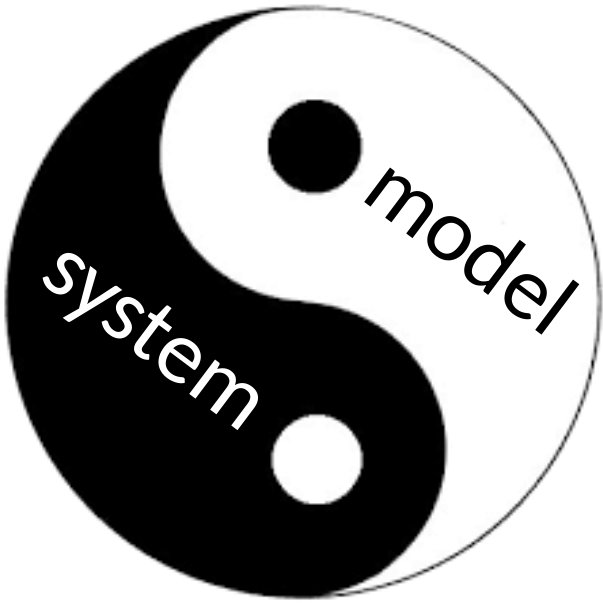Call for Papers
In order to most effectively use models at runtime, self-aware computing systems
need increasingly powerful ways of observing their operational environment and
their own performance and behavior and then building and refining their own
models accordingly. An inherent principle of self-aware computing systems is
having diverse feedback loops, which build a causal connection between the
computing system and a reflective layer. The computing system is continously
observed and, based on this, the system is able to update and modify its
models to reason about its goals, context, operational environment and its own
resources, decisions and actions.
To effectively and efficiently realize these feedback loops, models and
especially modifiable and updatable models@runtime are essential. The
models@run. time paradigm proposes to use runtime models as abstractions of
the computing system for the purpose of more efficient reasoning upon both
its runtime observations and learned knowledge. Hence, models@runtime is
especially looking for more innovative approaches to the causal connection
between the system and the runtime model, with particular focus on a transaction
concept for this causal connection for such issues as timing, roll-back ability
and data-consistency.
The goal of this workshop is to provide a bridging podium for researchers
working in the area of self-awareness, self-modelling, autonomous and organic
computing, as well as self-adaptive and self-organizing systems with a focus
on runtime representations that can be used by the system to reason about its
goals, context, operational environment and its own resources, decisions and
actions.
Topics of Interest
We are particularly interested in work covering the following non-exhaustive
list of topics:
- languagues and formalisms for runtime representations
- approaches realizing the causal connection between the computing system and
its reflective layer
- applications and case studies involving runtime representations
- a general discourse on
- the need for and characteristics of runtime representations
- the properties of causal connections (e.g., temporal properties, uncertainty,
etc.)
- interdisciplinary approaches to models@run.time, as for example the mutual
influence (or coercion) of socio-technical systems
- How runtime models can address basic principles of areas such as game theory.
- Distributed models@run.time, i.e., having multiple, interacting systems, each
having its own runtime model and in general, issues of models at runtime in
large scale systems
- Incomplete, partial models
- Impacts of uncertainty
- Approaches to real-time model-building, refinement
- Relevant theory on transactions
- Relevant lessons learned from bio-inspired, socially-inspired, unconventional
systems
- Modular models@run.time, i.e., approaches to improve the modularity of
models@run.time systems for better reuse
- Co-evolving models@run.time, i.e., systematic approaches to synchronize
multiple, interacting models@run.time systems
- For those papers focusing on executable models at runtime, we encourage the
investigation of how the feedback from the systems are reflected in the
executable models (so that they have causal (bi-)connections with the
systems)
Submission
The workshop participants will be selected based on their experience and ideas
related to this maturing field. You are invited to apply for attendance by
sending:
- a full paper (8 pages) on original research, lessons learned from realizing
an approach or experiences on transferring a research prototype into practice,
- a position paper (6 pages) covering a well-argued vision or position
All papers must conform to the double-column IEEE formatting guidelines. At
least three PC members will review each submission. The authors will be
notified about acceptance before the ICAC 2016 early registration deadline.
You can submit your papers via EasyChair here.
Organizers
- Sebastian Götz (main contact) (web), Technische Universität Dresden, Germany
- Nelly Bencomo (web), Aston Universiy, UK
- Kirstie L. Bellman (web), Topcy House Consulting, US
- Gordon Blair (web), Lancaster University, UK
Program Committee
- Franck Chauvel, SINTEF, Norway
- Mahdi Derakhshanmanesh, University of Koblenz-Landau, Germany
- Antonio Filieri, Imperial College, UK
- Ta’id Holmes, Deutsche Telekom AG, Germany
- Jean-Marc Jézéquel, Triskell Team,IRISA, France
- Chris Landauer, Topcy House Consulting, USA
- Matthias Tichy, Uni. Ulm, Germany
- Kurt Geihs, Uni. Kassel, Germany
- Holger Giese, Universität Potsdam, Germany
- Lars Grunske, HU Berlin, Germany
- Yves La Traon, Uni. Luxembourg, Luxembourg
- Thomas Vogel, Universität Potsdam, Germany
- Lionel Seinturier, Uni. Lille, France
- Hui Song, SINTEF, Norway
|



